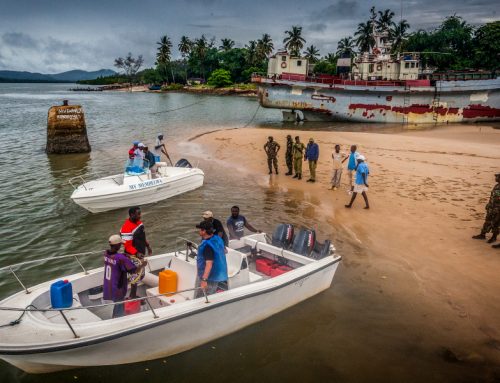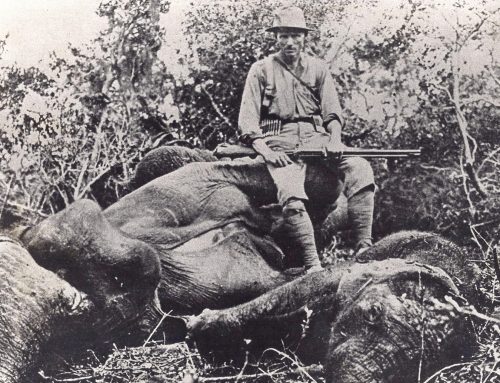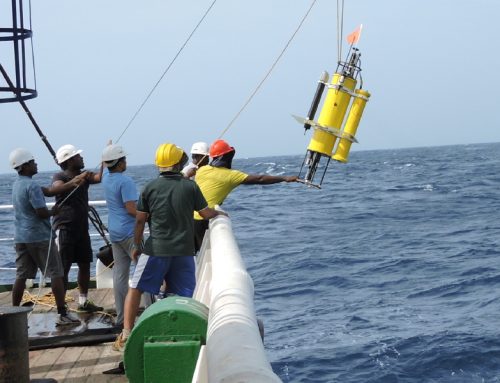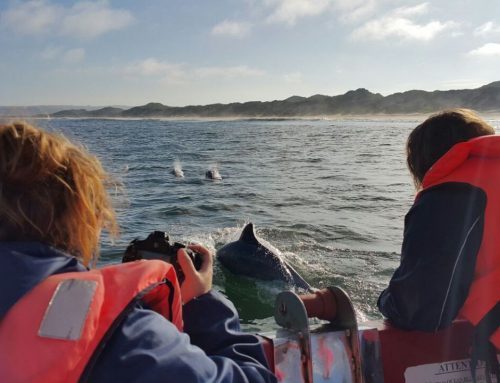South Africa has approximately 4500 export fruit growers who are coming together under one body to consolidate an industry that is based on sound, internationally benchmarked social, ethical and environmental principles.
To achieve this, the WWF Sustainable Fruit Initiative, co-funded by the WWF Nedbank Green Trust and the Dutch Ministry of European Affairs and International Cooperation, is collaborating with the Sustainability Initiative of South Africa (SIZA) through Fruit SA. Fruit SA is the umbrella body of all the fruit industry associations in South Africa and exporters who are members of the Fresh Produce Exporters’ Forum.
“We are using the internationally recognised Global Social Compliance Programme as our benchmark to create one platform to support growers. This will enhance the performance and sustainability of the local fruit industry while at the same time satisfying the requirements of international retailers,” says Inge Kotze, Senior Manager of the WWF Sustainable Agriculture Programme who is leading the WWF Sustainable Fruit Initiative. The key export markets for the 4500 South African export fruit growers and 95 export agents are the United Kingdom, European Union, the Middle East, Asia and the United States. In addition to the export market, South Africa has approximately 400 fruit growers who supply the local market.
“The WWF’s support to the fruit sector focuses on the local and regional environmental challenges of ensuring climate-resilient fruit production, and on extending the landowner biodiversity stewardship programme amongst fruit growers, while SIZA’s work focuses on the social and ethical side, including employee best practice,” Kotze explains.
The WWF landowner stewardship model will focus its main efforts on fruit producers in the globally important Cape Floral Kingdom of the Western Cape where many farmers multi-crop, producing wine and fruit, and where an estimated 85% of South Africa’s wine and fruit producers are situated, 50% in critical biodiversity areas and priority freshwater catchments.
Since its launch in 2011 the WWF Sustainable Fruit Initiative has completed a significant amount of groundwork in collaboration with Fruit SA. This includes benchmarking current certifications and standards required by the export markets, researching climate risks and variability, as well as regional and local challenges in the fruit industry.
“Science is showing the fruit-producing sector in the Western Cape will be confronted with increasing, extreme climate variability and we need to understand these impacts and what on-farm or catchment-wide activities can reduce these risks and impacts,” says Kotze. “In June 2013 we are launching a national 18-month regional pilot with a range of growers of all the different kinds of fruit we have in South Africa, namely citrus, pome, table grapes and subtropicals.”
The pilot will roll out nationally within four regional areas and include different farmer study groups in the Western Cape, Eastern Cape and the Malelane/Inkomati catchment in Mpumalanga, to assess the local risk drivers, such as water availability, water quality and management, socio-economic and population pressures and climate change issues.
“We are focusing on associated regional environmental risks in our farmlands in order to help growers better manage their production to mitigate or adapt to these risks, now and into the future,” Kotze continues.
In the Grabouw-Villiersdorp apple and pear growing area, for example, farmers are concerned about the insufficient winter ‘chill units’, in other words they have not been getting sufficient extended periods of cold in winter, which the apples and pears require during their dormancy stage. Instead, they are getting waves of warm weather during the winter, which is triggering premature budding that has a negative impact on yield.
Another example of climate-related negative impact on yield is in the stone fruit sector (peaches, apricots, plums, nectarines) of the Little Karoo (from Worcester to Robertson to Oudtshoorn) where growers are experiencing frequent extreme hail and wind events during harvest time.
“Changing seasonal patterns of rain fell and sufficient good quality water supply is another key risk factor that growers are facing in many regions,” says Kotze. “The lack of rain or the ability to predict when and how it is going to fall is a major area of concern. The Western Cape is still getting enough rainfall in terms of quantity, but it is often falling too intensely over short periods in the unseasonal summer, instead of the characteristic soaking winter rains over longer periods.”
To help mitigate this, good water management is essential at a catchment-wide level: from on-farm and nature reserve level to provincial, municipal and industrial level.
Kotze offers the example of the Palmiet River catchment area of the Elgin/Grabouw region where wine and fruit farmers typically export 60-70% of their produce. Many already have high standards of alien plant clearing, restoration of riverbanks and good water management on their farms. However, much of their hard work comes to nothing if the municipal water and waste systems are not well managed, with poor quality water threatening exports as it is used throughout the production process (for irrigation, packaging and bottling).
“Wine and fruit exporters have to comply with stringent international food safety certifications, such as GAP, Tesco Nurture and LEAF, all of which include strictly monitored food health and safety, social and environmental regulations,” explains Kotze. “If these certifiers carry out tests in an area and find E. coli in the water because sewerage hasn’t been properly managed or because raw sewage is flowing into the rivers, it directly threatens the farmers’ export market. At the same time it threatens the health of the people living in this region and it threatens the sustainability of the water supply. Therefore, many of these partnerships need to work within the broader catchment to manage the risks beyond the farm gate.”
To improve and standardise the social and ethical side of the South African fruit industry, which is also a requirement of the international certifiers, SIZA has been working with the fruit industry and retailers since 2008. “We wanted to entrench a standard for the South African fruit industry that is locally and internationally recognised, and which includes all the requirements of the Global Social Compliance Programme. These range from fair working conditions and hours for farm labourers to payment of minimum wages to the prohibition of child labour on farms to good working relationships with the unions and all partners in the value chain,” explains SIZA programme coordinator Colleen Chennells who is a lawyer by training.
SIZA opened registration for South African fruit growers, retailers and exporters at the beginning of 2013 and it already has over 300 members.
“SIZA is not an accreditation scheme; it is a countrywide initiative which has established an international standard aligned to South African labour law, which supports best practice and commitment for the South African fruit industry,” Chennells qualifies. “We are working with the industry and government to implement the programme, which we hope to see extended to all areas of agriculture down the line.”




